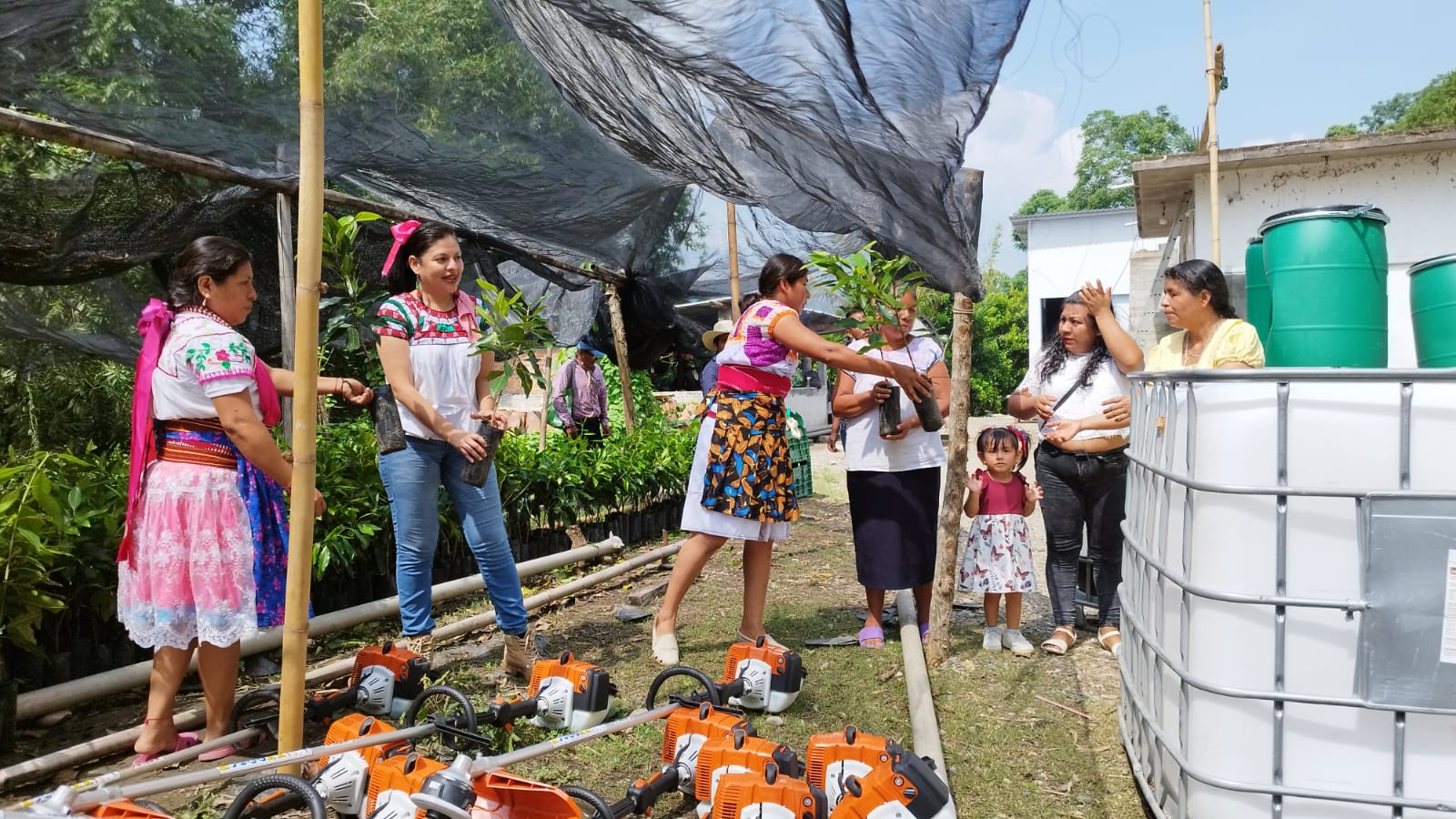Veracruz, Mexico
The ancestral Pimienta Gorda-Milpa planting system, promoted by the Limaxtum Indigenous organization, combines traditional agroforestry with sustainable practices to strengthen the community economy, food sovereignty and resilience to climate change. Based on the association of allspice (Pimenta dioica) with the Mesoamerican milpa, this model promotes women’s leadership, the rescue of native varieties, the production of bio-inputs and the strengthening of the social fabric. With 972 members, of which 248 are women, Limaxtum has achieved key innovations such as tree grafting, controlled pruning and the establishment of nurseries.
This case study is part of a special collection developed by Regions4 as part of its work on
Just Resilience. With the support of CONGOPE, its goal is to highlight Indigenous and community- based economic models that integrate sustainable practices, ancestral knowledge and collective organisation, and that actively contribute to environmental conservation and territorial resilience.
These experiences were identified during the Breakthrough Workshop on Indigenous Economy and Just Resilience held in Napo (Ecuador) in January 2025. The case studies include practical recommendations for subnational governments to recognise, strengthen, and collaborate with these models through their public policies, fostering a fairer, more inclusive transition in harmony with nature.
The full case study in Spanish, English and French is available below:
-
LIMAXTUM (Español)
Descargar -
LIMAXTUM (English)
Download -
LIMAXTUM (Français)
Télécharger
